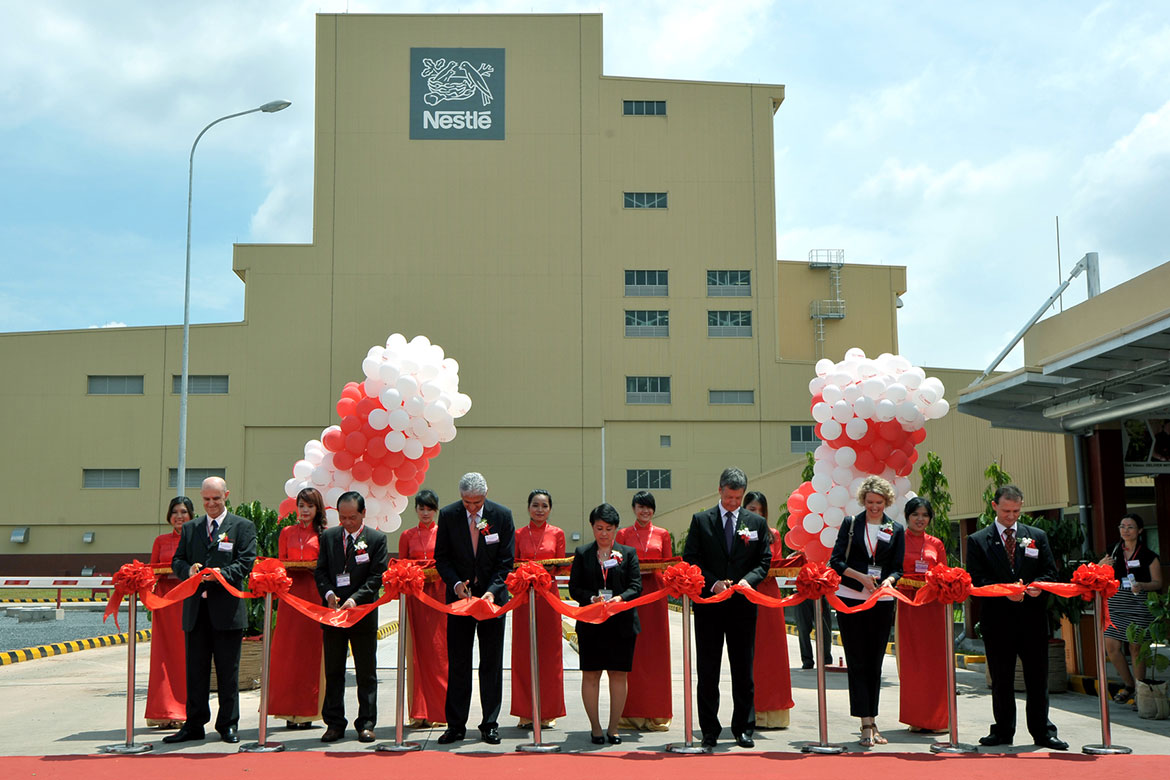MULTINATIONALS
When multinationals have their name
The perceived nationality of a multinational plays a key role in its ability to maintain its establishments during turbulent periods. This comes from skilfully thinking it out on a case-by-case basis.

Locally relevant: a new factory for soluble coffee is opened in Dong Nai province in Vietnam in 2013. | Photo: Nestlé
“The nationality of a company is never something ontological; it is constructed and can also be challenged”, says Sabine Pitteloud, an assistant professor of contemporary history at UniDistance Suisse in Brig. She worked on how multinationals manage their presence in countries plagued by political instability with Pierre-Yves Donzé, a professor of business history at the University of Osaka and visiting professor at the University of Fribourg. Together they looked at the case of Nestlé, by analysing the firm’s private archives in fourteen countries between 1950 and 1980, including Belgian Congo, India, Japan and Turkey.
The duo were able to identify three human resources strategies. The first was to invest in the training of local managers. “It was a matter of ensuring the support of these leaders in the event of unrest”, says Pitteloud. The second strategy was the choice of the nationality of the managers, according to the political context. If the host country had good relations with its colonising power, the firm capitalised on those existing links by preferring a leader of that same nationality.
But after the waves of independence, Swiss leaders – coming from a country seen as neutral – were privileged. The last strategy was to promote expatriation as a professional springboard to ensure a pool of candidates. A recent case, the replacement of a French manager by a Russian successor in 2023 at the head of Nestlé Russia, suggests that these strategies are still underway. This is the conclusion of the study published in May 2025.
For Pitteloud, “the return of highly politicised trade relations, in the wake of the changing American administration, will necessarily affect the way a multinational will choose its managers and therefore present itself”.



